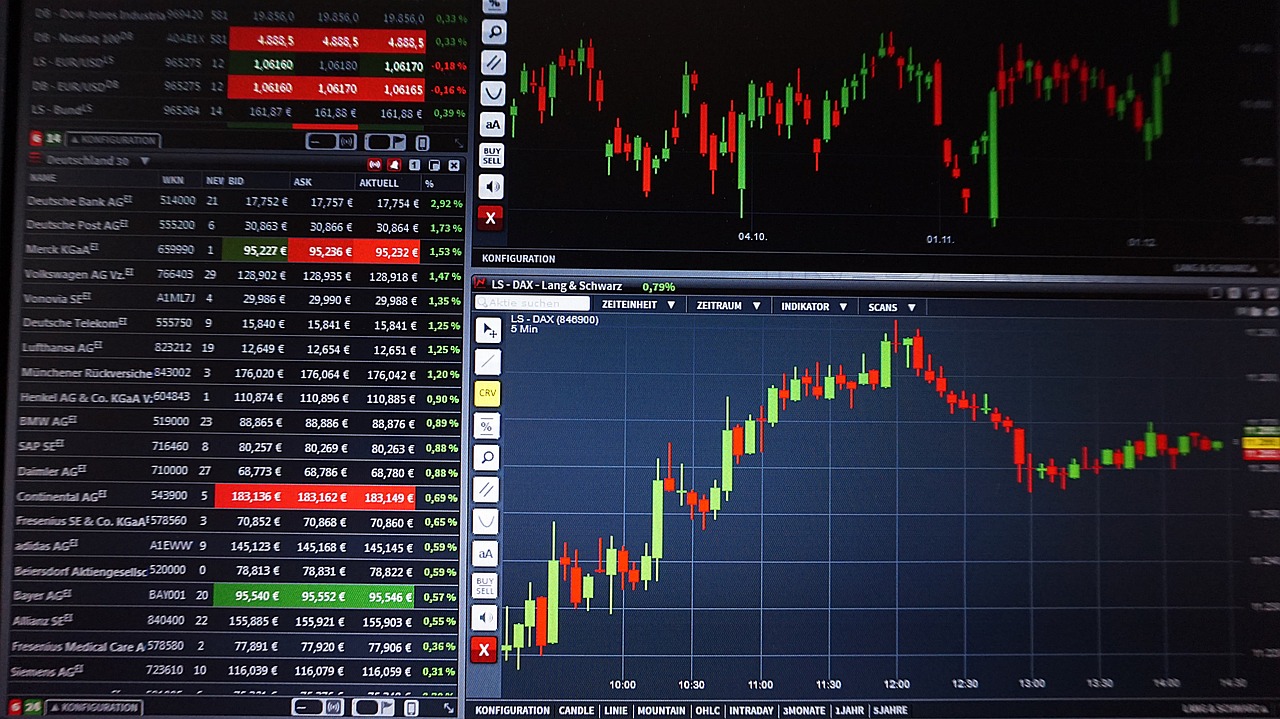Most people still think that the blockchain is a technology reserved for banks and financial institutions that want to improve the speed of their transaction processing procedures and the quality of their overall service internally. However, one has to remember that the blockchain was originally designed with average people in mind, not banks or financial systems. Bitcoin was developed as a means of exchange for the people, not as an investment instrument that it has become now. With the spread of blockchain and the idea of how to make money on it, the trading environment has fostered many new approaches to making profits with the help of cryptocurrencies and has, in turn, fueled the development of throngs of new assets.
A cryptocurrency exchange is a process through which users convert one cryptocurrency for another and receive profits from the resulting margin. Indeed, cryptocurrencies are volatile by nature and are therefore prone to significant price swings, which are then leveraged by traders and average users to make a profit. This inherent quality of cryptocurrencies is what makes them both attractive and risky for those who do not have high risk appetites. But it is important to admit that if one does not have a high risk appetite, then they will have very limited opportunities in the cryptocurrency space, since in its current state, it can be hardly any more beneficial than traditional fiat currencies.
The development of numerous cryptocurrencies has allowed people to find new applications for them. The latter include use as access tokens to various platforms and use as internal currency on such platforms for exclusive content. But time has proven that such applications are limited and fiat currencies can perfectly replace any of the aforementioned use cases. One of the last vestiges where cryptocurrencies are finding usability is the Web3 space and the emerging layer of transactions between states to subvert sanctions regimes. In the latter case, cryptocurrencies are no longer viewed as a viable means, since states are in the process of developing their own state-issued assets that would be far more reliable and attractive for use as a means of payment, largely, because they will have collateral backing in the form or national gold reserves.
With such a reality arrayed against them, users are forced to take a new and fresh look at the cryptocurrencies they hold and wonder if they can exchange Litecoin to Bitcoin profitably for much longer. The cryptocurrency exchange will remain a pivotal hub for the entire cryptocurrency industry, but many are wondering if state-backed platforms can soon emerge as much more secure and attractive alternatives.
The Conversion Dilemma
In order to convert LTC to BTC, or any other assets for another type, users must first find a reliable cryptocurrency platform that would allow such a transaction. The exchange is the natural choice, but the question arises regarding which of the hundreds of such platforms on the market one should choose. This is where one must look first at a number of important criteria, namely:
- The security of the exchange;
- The lineup of listed assets;
- The type of wallet connection the exchange offers;
- The commissions for transactions;
- The convenience of the interface.
These and other factors will be decisive once users decide to exchange their coins and tokens. Selecting and exchange starts always with reading reviews about a specific short list of platforms that operate safely inside the user’s jurisdiction. Indeed, the sanctions war that is playing out more like a tragicomedy around the globe, has had a detrimental impact on the operability of such exchanges, forcing a number of them to wrap up operations in some countries. Though the given approach does cast a serious shadow of doubt on the claim that decentralized space is free of government interference and is designed for all of mankind, one has to remember that the majority of exchanges are centralized and are therefore controlled by the legislation of their countries they are incorporated in.
Once an exchange has been selected, users need to start registering and accept the fact that all centralized exchanges will require passage of the mandatory Know Your Customer procedure. Unless one is using a decentralized exchange, their choice of options is limited in terms of avoiding control and oversight on the part of the authorities. The centralized exchanges are required to abide by the laws governing financial space and will therefore provide all user details to the authorities upon request and can even block user funds upon notice.
With such a sad reality in mind, users must wonder if they wish to use the exchange-offered wallets, which are usually custodial. That means the exchanges retain the private keys and the funds. This, in turn, means that if the exchange is breached, then the funds will be stolen and there is little that users or the exchange will be able to change that fact. That is why many users are deliberately turning to non-custodial wallets as a solution. The latter allow users to retain their private keys and conduct operations safely.
